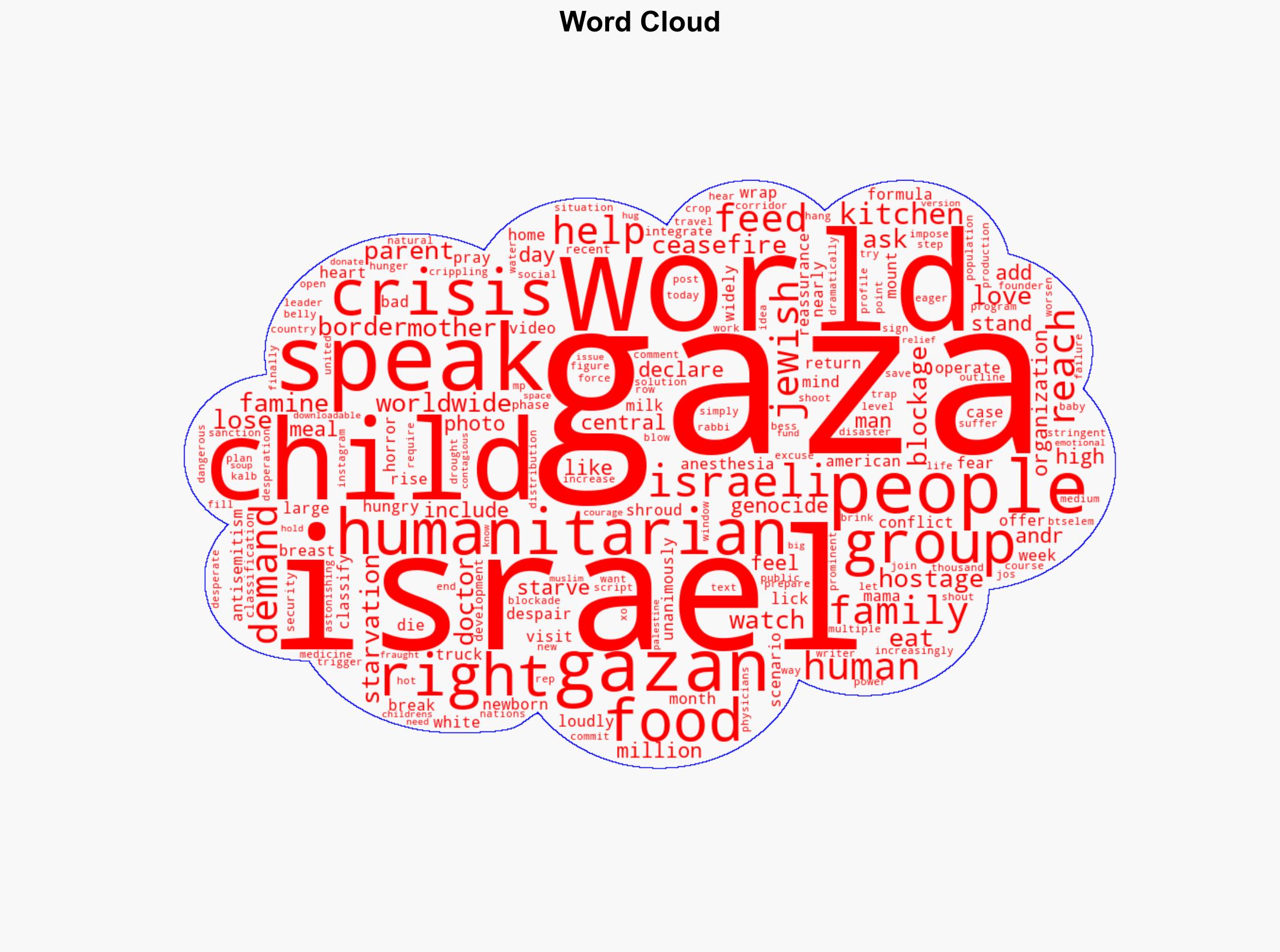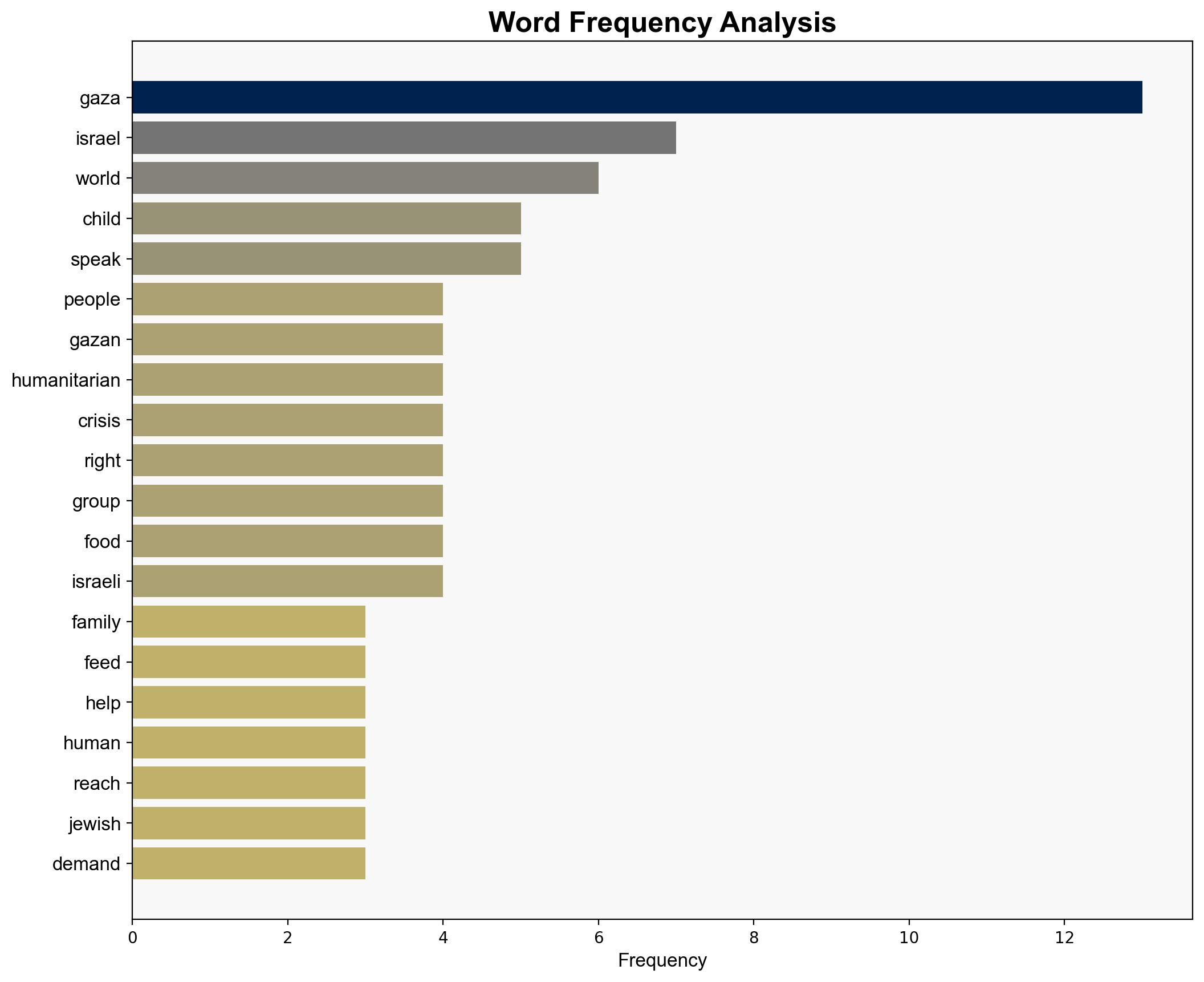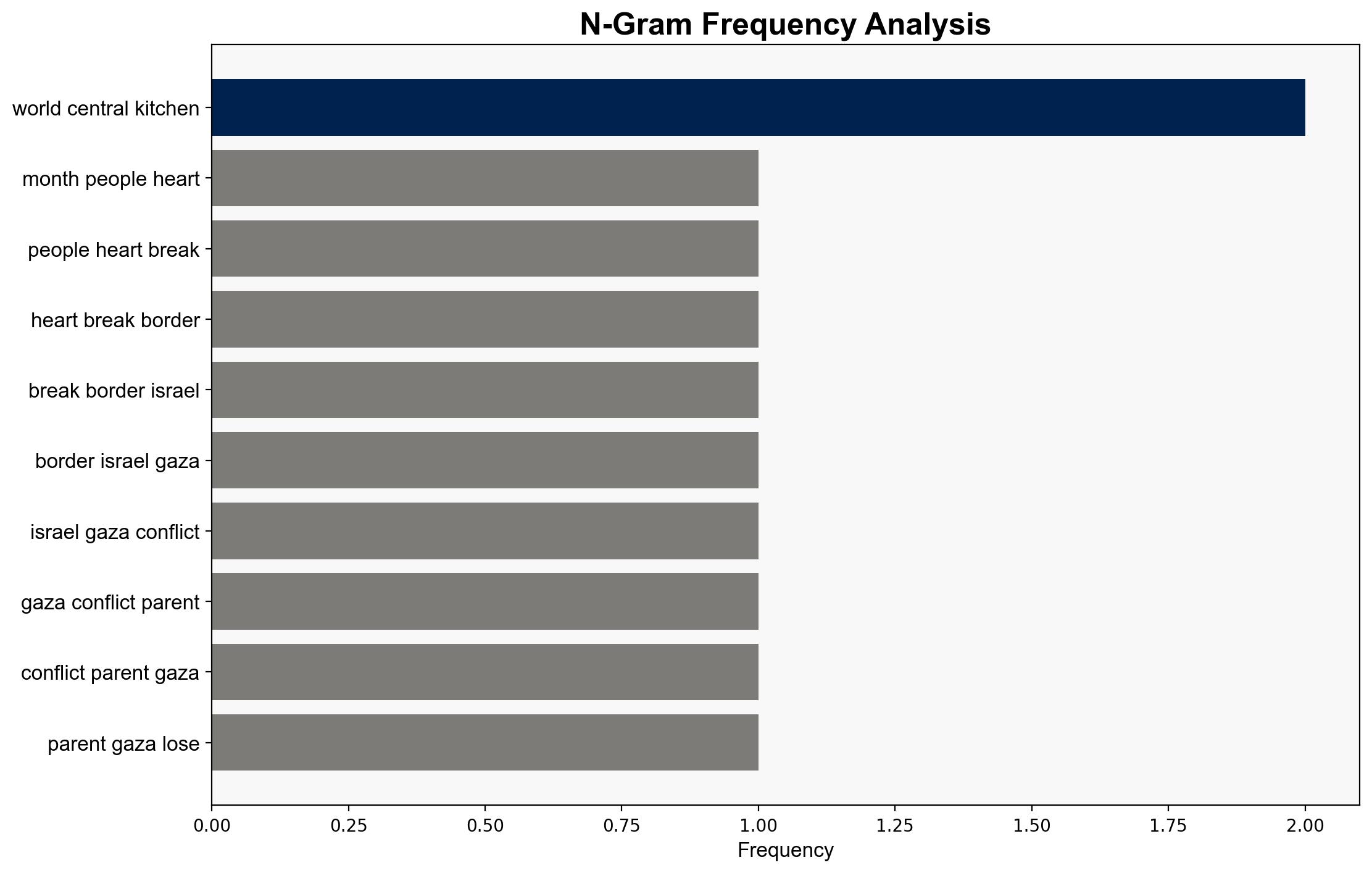Families in Gaza Are Starving What Can We Do – Cupofjo.com
Published on: 2025-07-29
Intelligence Report: Families in Gaza Are Starving What Can We Do – Cupofjo.com
1. BLUF (Bottom Line Up Front)
The humanitarian crisis in Gaza is escalating due to severe food shortages, exacerbated by an Israeli blockade. Two primary hypotheses are considered: one attributing the crisis primarily to the blockade, and another suggesting broader geopolitical dynamics are at play. The hypothesis that the blockade is the primary driver is better supported by the evidence. Confidence level: Moderate. Recommended action includes advocating for international diplomatic efforts to ease the blockade and increase humanitarian aid.
2. Competing Hypotheses
Hypothesis 1: The primary cause of the starvation crisis in Gaza is the Israeli blockade, which restricts essential supplies from entering the region. This hypothesis is supported by reports from human rights organizations and statements from Israeli groups calling for an end to the blockade.
Hypothesis 2: The starvation crisis is a result of broader geopolitical dynamics, including regional power struggles and international political agendas, which use the blockade as a tool among others to exert pressure. This hypothesis considers the influence of international actors and the complex interplay of regional politics.
3. Key Assumptions and Red Flags
– **Assumptions for Hypothesis 1:** The blockade is the primary factor affecting food security, and easing it will significantly alleviate the crisis.
– **Assumptions for Hypothesis 2:** The crisis is deeply embedded in geopolitical strategies, and addressing the blockade alone will not resolve the underlying issues.
– **Red Flags:** Potential bias in reports from advocacy groups, lack of independent verification of claims, and the possibility of misinformation or propaganda influencing perceptions.
4. Implications and Strategic Risks
– **Humanitarian Impact:** Continued blockade could lead to a full-scale famine, increasing mortality rates and triggering a humanitarian disaster.
– **Geopolitical Risks:** Escalation of tensions between Israel and neighboring countries, potentially drawing in international actors and complicating peace efforts.
– **Psychological Impact:** Rising global antisemitism and increased radicalization within affected populations.
5. Recommendations and Outlook
- Engage in diplomatic efforts to negotiate a temporary easing of the blockade to allow humanitarian aid.
- Support international monitoring to ensure aid reaches those in need and is not diverted for political purposes.
- Scenario Projections:
- Best Case: Successful diplomatic intervention leads to a sustainable resolution and improved humanitarian conditions.
- Worst Case: Escalation into broader conflict, further exacerbating the humanitarian crisis.
- Most Likely: Partial easing of the blockade with continued international pressure, leading to temporary relief but not a long-term solution.
6. Key Individuals and Entities
– Bess Kalb
– Jos Andrés
– Abdel Kareem Hama
7. Thematic Tags
national security threats, humanitarian crisis, regional focus, geopolitical dynamics





